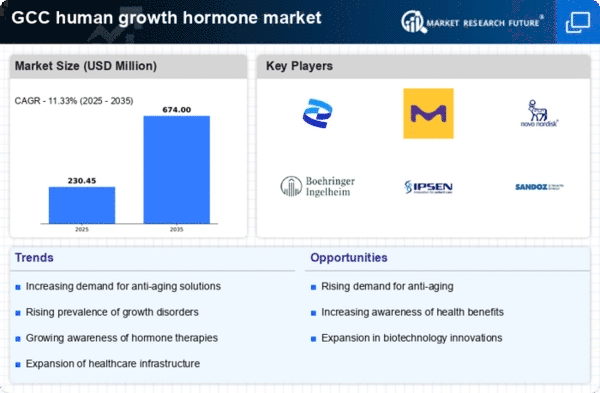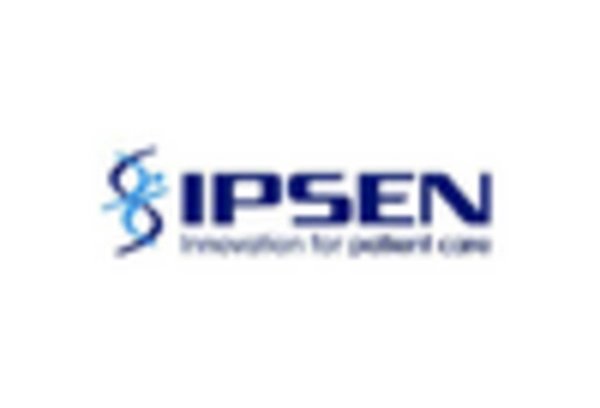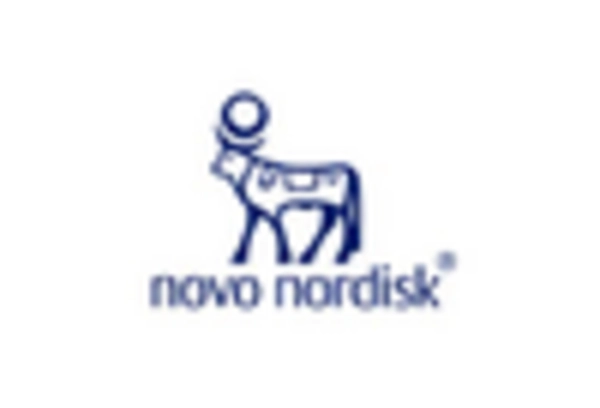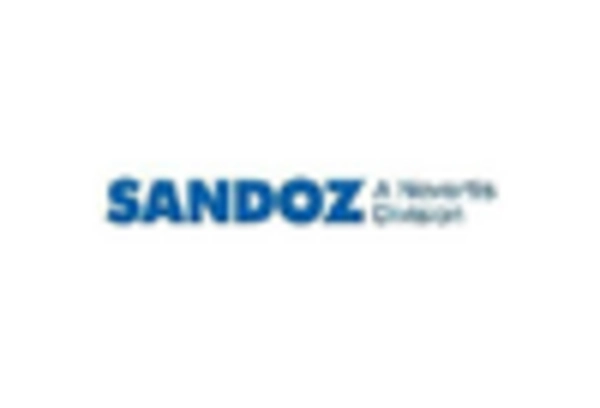Advancements in Biotechnology
Technological advancements in biotechnology are significantly influencing the human growth-hormone market. Innovations in recombinant DNA technology have led to the development of more effective and safer human growth hormone products. The GCC region is witnessing an increase in research and development activities, with investments in biopharmaceuticals projected to reach $1 billion by 2026. These advancements not only improve the efficacy of treatments but also enhance patient compliance, as newer formulations may offer more convenient administration routes. Consequently, the growth of biotechnological innovations is expected to propel the human growth-hormone market forward.
Growing Healthcare Expenditure
The upward trend in healthcare expenditure across the GCC countries is a significant driver for the human growth-hormone market. Governments are investing heavily in healthcare infrastructure, with spending projected to reach $100 billion by 2026. This increase in funding is facilitating better access to advanced medical treatments, including human growth hormone therapies. As healthcare systems improve and more patients gain access to these treatments, the demand for human growth hormone is expected to rise. This trend indicates a positive outlook for the market, as enhanced healthcare services lead to greater awareness and utilization of hormone therapies.
Rising Sports and Fitness Culture
The increasing emphasis on sports and fitness within the GCC region is contributing to the demand for human growth hormone therapies. Athletes and fitness enthusiasts are increasingly seeking ways to enhance performance and recovery, which has led to a rise in the use of human growth hormone as a performance-enhancing substance. Although the use of such hormones is regulated, the allure of improved athletic performance continues to drive interest in the human growth-hormone market. This trend is likely to persist as fitness culture becomes more ingrained in the lifestyle of the GCC population.
Increasing Prevalence of Growth Disorders
The rising incidence of growth disorders among children and adolescents in the GCC region is a notable driver for the human growth-hormone market. Reports indicate that approximately 3% of children may experience growth-related issues, necessitating medical intervention. This growing prevalence is prompting healthcare providers to seek effective treatments, thereby increasing the demand for human growth hormone therapies. Furthermore, the awareness among parents regarding the importance of early diagnosis and treatment is enhancing the market landscape. As healthcare systems in the GCC continue to evolve, the focus on addressing growth disorders is likely to expand, contributing to the overall growth of the human growth-hormone market.
Aging Population and Related Health Issues
The demographic shift towards an aging population in the GCC is emerging as a critical driver for the human growth-hormone market. As individuals age, they often experience a decline in growth hormone levels, leading to various health issues such as decreased muscle mass and increased body fat. This has led to a growing interest in hormone replacement therapies among older adults. It is estimated that the aging population in the GCC will account for over 15% of the total population by 2030, creating a substantial market for human growth hormone treatments aimed at improving quality of life and health outcomes.
















